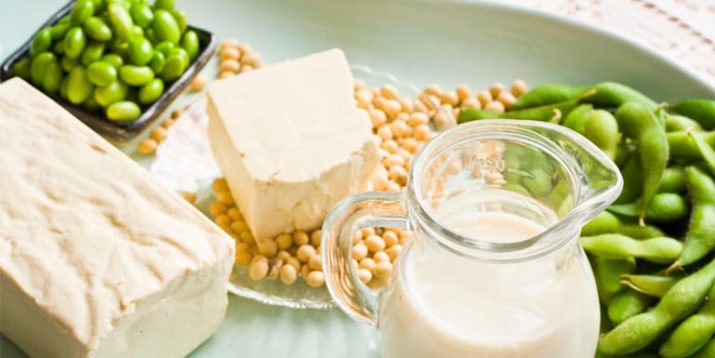5 Foods That Support Bone Health

You’ve been hearing it since you were a child: “Drink your milk!” Your parents just wanted to make sure you grew strong bones. They also wanted to make sure your latest hunger strike — that refusal to eat anything green, red, yellow, brown, etc. — didn’t end in starvation. So they sighed and let you spoon that super-sweet “strawberry” or chocolate powder into your milk so you’d at least eat something.
Nowadays, you’re probably a less picky eater and you also know it’s important to keep your bones strong to help protect your organs and support those muscles you’re sculpting.
But did you know that there’s a whole arsenal of other foods that can help keep your bones in tip-top shape? Plant-based nutrients (or phytonutrients) have health-promoting effects when consumed, and some raise the bar when it comes to supporting bone health. Find out more about these little-known foods.
Olive Oil and the Mediterranean “like” Diet
Step away from the shortening or anything Alice and Mrs. Brady might have used while prepping dinner for the bunch. Instead, reach for healthier MUFAs (monounsaturated fats) like those found in extra virgin olive oil. In addition to the potential heart-health benefits that come from consuming olive oil, the phenolic compounds found in olive oil may help support bone health.
In a sample of Mediterranean women, one research study saw that a dietary pattern close to the Mediterranean diet — including high consumption of fish and olive oil and low red meat intake — was related to better bone mass, suggesting potential bone-benefiting properties of this pattern throughout adult life. A Spanish study published in 2016 looking at isolated osteoplastic cells found that the polyphenols in olive oil may support bone cell growth.
Soy Isoflavones
Doing take out tonight? Scan your favorite Japanese restaurant’s menu and order sides of miso soup and edamame, two foods packed with soy isoflavones. A Japanese research team associated high consumption of soy products with increased bone health in postmenopausal Japanese women. Nine additional studies were analyzed that found even more bone benefits, such as supporting bone maintenance and healthy bone production in women who consumed about 90 mg of isoflavone-rich foods per day.
Lycopene
You know the bright red color in a ripe tomato or a juicy watermelon? That beautiful red comes from lycopene, a powerful phytonutrient. Men and women who participated in the Framingham Osteoporosis Study and reported eating several servings of lycopene-containing foods each week, such as tomatoes, tomato juice, and watermelon, had fewer hip and other bone fractures than the subjects who didn’t consume these foods.
Catechins
Whether your preferred brew is black, green, or white tea, all non-herbal teas come from the same plant, and contain compounds known as catechins. Correlative research has shown that drinking tea may offer a number of benefits to human health, including, yup, you guessed it, beneficial impact on bone health.
Postmenopausal women who took a green tea supplement and performed Tai Chi exercise as part of a 2012 study showed improved bone health. Although these associations look promising, longer clinical studies are needed to understand if there is a protective effect. Green teas have more catechins than black teas do, so brew a cup of green tea if you like what you hear. Better yet, treat yourself to a real matcha latte (not the sugar-laden kind), which has calcium to boot.
Dried plum polyphenols
You may think of dried plums (aka prunes) as something your grandma eats, but don’t knock ’em till you try ’em.
Dried plums are known to be rich in several polyphenols (phenolic acid derivatives, flavonoids, and coumarins to name a few), and they’ve been studied in both animals and humans for their health benefits. A 2013 mouse study found that the dried plum was more effective than other dried fruits in its ability to help protect and support bone health. A study on postmenopausal woman had similar findings. Women who consumed dried plums had better bone mineral density, at the end of the study than those who ate dried apples.
